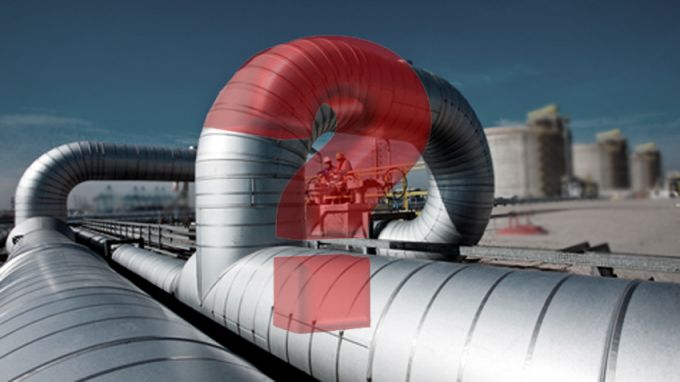
The gas routes will not go round Bulgaria, Premier Boyko Borissov said convincingly several days ago at the international investment round table about his favorite infrastructure project - the Balkan Gas Hub which is expected to be built on the Black Sea coast. The future of the project is not that clear, although it has been in the focus of public interest since the suspension of the South Stream gas pipeline project two years ago, which had to transfer gas from Russia through Bulgaria to Central Europe. Back then Bulgaria, which was relying on significant revenues from gas transit, was forced by Brussels to abandon the project. However, it kept its ambitions to transfer gas, although it is an EU external border and practically has been using Russian gas only delivered through Ukraine.
A gas hub basically means a gas distribution center. First of all it requires sufficient gas quantities. Secondly, it is linked with the existence of customers, who would buy natural gas. However, Bulgaria hasn't fulfilled any of those conditions. It has ideas, but all of them are rather in the scope of good intentions. Unfortunately, Bulgaria has not taken any visible and practical measures aimed at putting those intentions through. Bulgaria's officials say that the country may import gas from Azerbaijan, Iran, Greece, Turkey, etc. It may even find large gas deposits in the Black Sea shelf. Well, all of the above may happen in the future, but it is still not clear how long it would take to start importing gas from those countries or start extracting gas from own resources. On the other hand, the authorities have been talking about the construction of the future gas hub in very short terms. Initially, Brussels was skeptical about Bulgaria's ambitions, but the enthusiasm of the Bulgarian authorities turned out stronger than the rational arguments and the European Commission eventually supported the project and even promised to allot some financing to the gas hub. On Monday, the EC again reaffirmed its support to the Balkan gas hub project during the international round table in the presence of potential foreign investors who arrived in Bulgaria to receive information from their Bulgarian partners about all four versions of the project with an estimated cost of EUR 1.5 billion.
However, on the same day the CEO of Russian energy giant Gazprom Aleksey Miller repeated Russia's Energy Minister Alexander Novak and pointed out clearly and unconditionally that his company would not deliver gas to Bulgaria through the Black Sea bottom. In other words Sofia loses the game again, but this time Moscow has ruined the Bulgarian plans. Bulgaria's Premier Boyko Borissov insisted that Sofia, Moscow and Brussels should hold a trilateral meeting on the future of the Balkan gas hub, which may change things in the future. However, such a meeting is not very likely to be held since Gazprom refused to join the investors' meeting in Sofia, perhaps demonstrating a lack of interest towards the Bulgarian gas projects, which can't be fulfilled without its participation.
English version: Kostadin Atanasov
Under the name BGBizHub, Bulgarian entrepreneurs in Berlin have joined forces to promote and develop their businesses in Germany. "Like any other business, not only in Berlin or in Bulgaria, we currently face several problems -..
Bulgarians are consuming less bread, cheese and vegetables, but more fruit, according to the latest data from the National Statistical Institute on household consumption in the third quarter of 2025, compared to the same period last year...
In its “Questions and Answers” section on the introduction of the euro, the Bulgarian National Bank has published a clarification on how the single currency should be denoted and written in accordance with EU regulations. The name of the..

+359 2 9336 661
